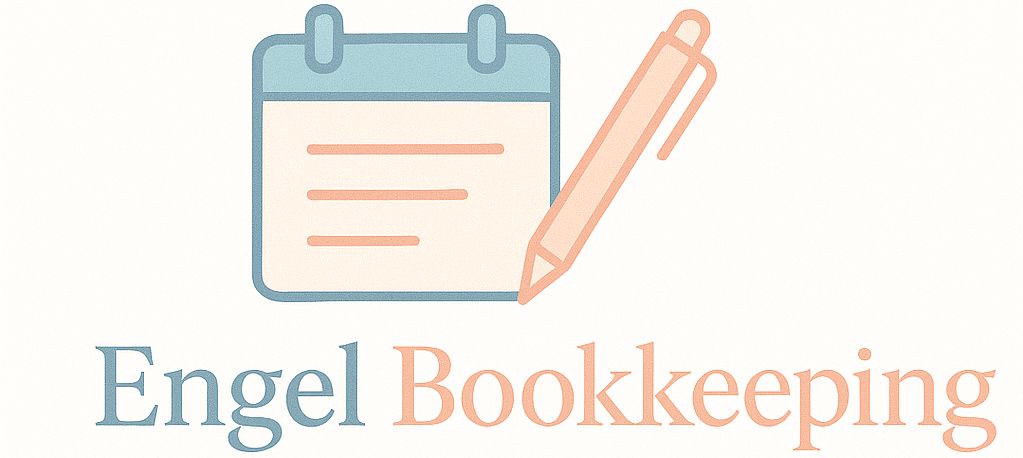Bookkeeping is a key component in steering any business in the right direction, whether you’re handling a small side hustle or running a company on the rise. It’s far more than just watching the dollars move in and out—it gives you a clear sense of your financial health, encourages good organization, and helps you make decisions with confidence. Here, I’m breaking down what bookkeeping actually covers, why it matters, and how it fits into any business operation.

What Is Bookkeeping?
Bookkeeping is all about logging and organizing every financial transaction that happens inside your business. This includes tracking sales, expenses, payments, receipts, and any other movement of money. Essentially, bookkeeping is the process of keeping all your financial records neat, updated, and ready to review whenever you need them.
You’ll spot bookkeeping practices in businesses of every size and across industries. Some folks stick with traditional ledgers or spreadsheets, while others use online accounting software to automate the hard parts. Ultimately, the goal is always the same: maintain accurate records that show your business’s true financial status at any given moment.
Bookkeeping vs Accounting: What’s the Difference?
Bookkeeping often gets mistaken for accounting, but they actually serve different purposes. Bookkeeping is all about gathering and organizing raw data—every receipt, invoice, and payment. Accounting takes the information from bookkeeping and turns it into reports, ideas, and strategic plans you can work with.
- Bookkeeping: Handling day-to-day recordkeeping and making sure each transaction gets logged accurately.
- Accounting: Breaking down those records, preparing financial statements, handling taxes, and offering advice based on what the numbers reveal.
It’s pretty normal for beginners to tackle the basic bookkeeping themselves. As a business starts to grow, hiring a bookkeeper or accountant can save you headaches and help keep everything running smoothly.
Main Purposes of Bookkeeping in Business
Keeping up with bookkeeping isn’t busywork—it brings some huge benefits for any business owner. Here’s how smart bookkeeping can give you a boost:
- Tracks Your Cash Flow: By following the money, you can spot trouble early, like overspending or missed payments.
- Keeps You Compliant: Clean records make tax season a breeze. When the IRS or another authority checks in, organized bookkeeping is a big relief.
- Guides Your Decisions: Up-to-date numbers help you make smarter moves, such as when to hire, buy new equipment, or cut down on expenses.
- Supports Planning and Budgeting: Looking back at your books makes it easier to anticipate what’s coming up, so you’re ready to meet your goals.
- Attracts Investors or Loans: Banks and investors want to see organized and reliable records before trusting you with extra funds.
Skipping bookkeeping or not giving it enough attention is like driving with your eyes closed—you’ll lose track of what’s really happening, and surprises won’t be good ones.
Getting Started with Bookkeeping
Starting out with bookkeeping is straightforward, even if you have no prior experience. There are two main ways to keep track of business finances:
- Single entry bookkeeping: The simplest approach, where each transaction shows up once on your records. It’s fine for tiny businesses or side hustles.
- Double entry bookkeeping: The more thorough system, common for growing operations. Each transaction gets entered twice, as both a debit and a credit. This helps spot mistakes and keeps your books balanced.
If you’re new, using a spreadsheet or a basic cloud tool like Wave or FreshBooks is a good way to get started. As the business grows, software like QuickBooks, Xero, or Zoho Books can make things run even smoother.
Common Bookkeeping Terms You’ll Run Into
There are some basic terms you’ll keep seeing in bookkeeping. Here are a few, spelled out simply:
- Assets: What you own, such as cash, equipment, inventory, and accounts receivable.
- Liabilities: What you owe, including loans, unpaid bills, and credit card balances.
- Equity: The worth left over after taking your liabilities away from your assets—it’s what belongs to you as the owner.
- Revenue: The money you bring in from your main business activities, like selling products or services.
- Expenses: The money you spend to keep your business running, such as rent, supplies, utilities, and wages.
Once you’re comfortable with these basics, reading financial reports becomes a lot easier, letting you get a better sense of how well your business is doing.
Step-by-Step Guide to Bookkeeping Basics
Solid bookkeeping is about creating good habits. Here’s an easy roadmap for beginners:
- Open a business bank account: Don’t mix personal and business money. Keeping them separate makes bookkeeping way simpler.
- Hold onto all receipts and records: Save everything, either in paper form or digitally. Cloud tools and mobile apps make staying organized simple when tax time comes.
- Log transactions regularly: Schedule a weekly block of time to jot down sales, purchases, and payments. Waiting too long just makes the job tougher.
- Reconcile your books: Match up your records to your bank statements. If something doesn’t add up, fix it right away.
- Review your financial reports: Scan through your profits, losses, cash flow, and debts every month to stay on track.
Being consistent is way more important than being perfect. Several short sessions usually beat one frantic deep dive at year’s end.
Common Bookkeeping Challenges and How to Avoid Them
Bookkeeping can get overwhelming if you let things slip, but a few tricks make it much easier:
- Getting behind: Putting it off leads to a bundle of paperwork and lost info. Using reminders or automation helps you stay organized.
- Mixing personal and business money: This makes it hard to figure out spending later. Keep things separate from the start.
- Typos and entry errors: Small mistakes add up. Double-check your work or use tools that sync directly with your bank to cut down on human error.
- Missing out on deductions: Failing to track little expenses could mean paying extra taxes. Capture everything, no matter how minor.
Check out some affordable apps with solid reviews. There’s one for just about every workflow and business stage.
How Bookkeeping Helps Your Business Grow
With updated books, you can:
- Confidently apply for loans or investment because you’ve got the proof you need.
- Notice trends—like your top-selling products or services—and respond quickly.
- Cover unexpected expenses without scrambling when things change suddenly.
- Set budgets you can stick to, whether for marketing, hiring, or buying stock.
- See exactly what moves the needle and what’s not carrying its weight.
Bookkeeping works like a financial dashboard. Instead of guessing, you base every move on facts, steering your business in the right way.
Bookkeeping in Action: Real-Life Scenarios
Here are some specific ways business owners put bookkeeping to work:
- Retail shop owner: Records daily sales from a point-of-sale system and captures supplier invoices as expenses.
- Online freelancer: Tracks each payment from clients and logs subscriptions or equipment upgrades as business costs.
- Café manager: Runs payroll, logs orders for ingredients, and watches utility bills to cut expenses where possible.
I initially handled my side business with a simple spreadsheet and carefully logged each payment. When I switched to accounting software, budgeting and preparing for taxes became effortless. Tracking things—even in the simplest way—gave me control and confidence right from the beginning.
Frequently Asked Questions About Bookkeeping
Question: Can I do my own bookkeeping, or do I need a professional?
Answer: Plenty of small businesses handle their own bookkeeping using spreadsheets or userfriendly software. When your business picks up speed, working with a bookkeeper or accountant can save you time and help dodge mistakes.
Question: How often should I update my books?
Answer: Weekly (or daily) updates work best. The more often you update, the smoother things go when it’s time to check your finances or do your taxes.
Question: What documents should I save for bookkeeping?
Answer: Keep invoices, bank statements, receipts, tax forms, and proof of all expenses. Digital records are fine if they’re organized and easy to read.
Wrapping Up
Bookkeeping isn’t just another to-do for your business—it’s your tool for keeping finances clear and things moving forward. Setting up solid habits now leads to less stress, accurate records, and better decisions down the road. For tools, templates, and more guidance, check out the IRS Recordkeeping Guidelines or read reviews of accounting software at Investopedia. There’s always a chance to learn more and build a stronger business every day.
